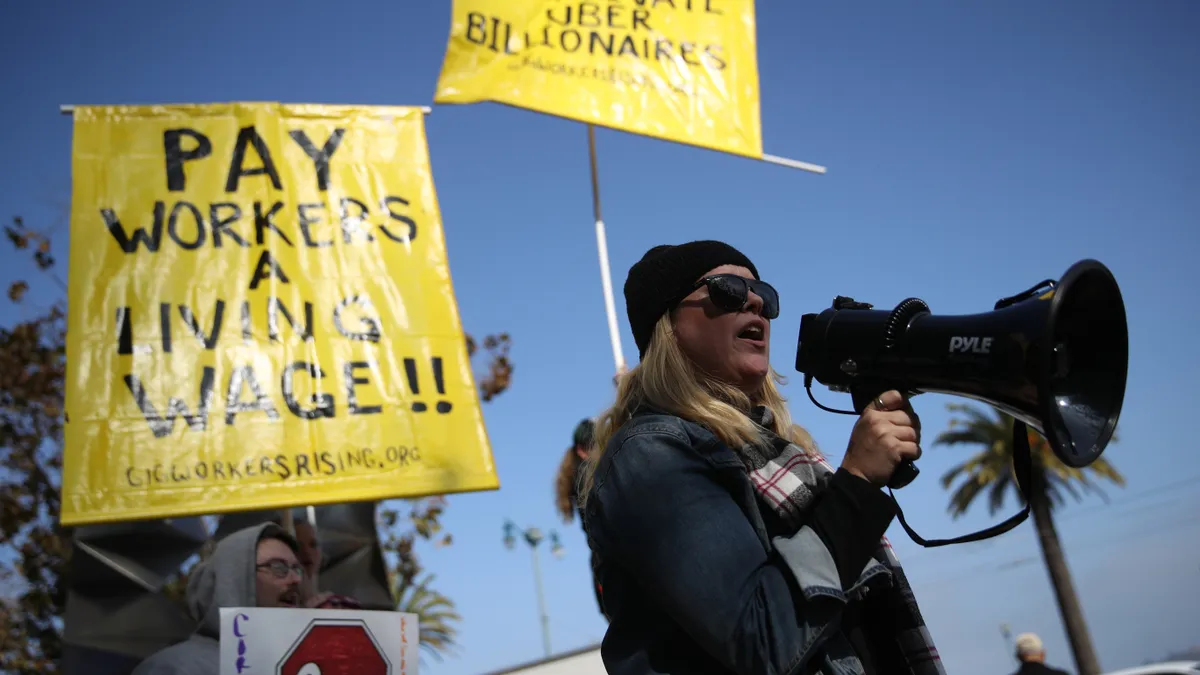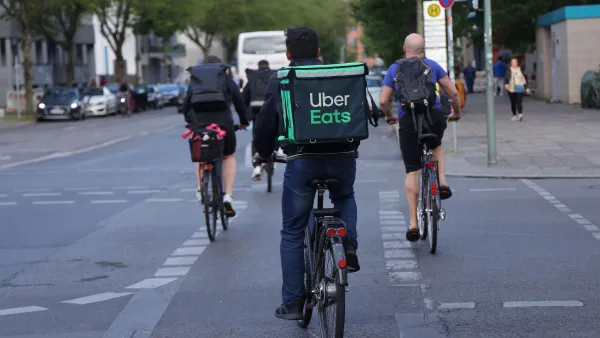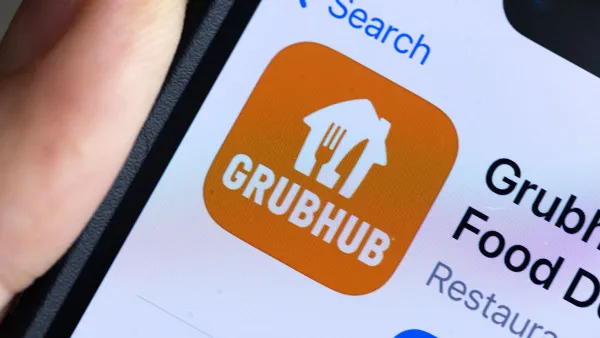Dive Brief:
- A California law requiring that ride-hail and delivery drivers be classified as employees is constitutional, according to the Ninth U.S. Circuit Court of Appeals, in an 11-0 decision on Monday. The ruling reverses an earlier decision by a three-judge panel that sided with Uber, which typically treats drivers as independent contractors.
- However, the California Supreme Court will be hearing a separate case on the legality of a 2020 statewide ballot measure known as Proposition 22, which classified gig drivers as independent contractors. Uber, Lyft and DoorDash reportedly spent more than $200 million to convince voters to approve the measure, which passed with a 59% majority.
- The outcome of the legal wrangling over app drivers in the Golden State could impact similar legislation in other states, such as Massachusetts.
Dive Insight:
California Assembly Bill 5, which went into effect on Jan. 1, 2020, added a new standard to the state’s labor law, known as the ABC test, that defines worker relationships, effectively requiring ride-hail and delivery drivers, along with many other gig workers, to be classified as employees. Uber and Postmates, a food delivery provider which Uber now owns, sued the state, claiming that the law unfairly singled out gig-app companies.
In Monday’s ruling, the court concluded that “there were plausible reasons for treating transportation and delivery referral companies differently from other types of referral companies, particularly where the legislature perceived transportation and delivery companies as the most significant perpetrators of the problem it sought to address —worker misclassification.”
AB5 was introduced by Lorena Gonzalez Fletcher, then a member of the state legislature and now the executive secretary-treasurer of the California Labor Federation. In a June 10 statement, Gonzalez Fletcher said the appeals court decision “is a victory for all workers in the state, but especially the chronically misclassified workers in rideshare and delivery jobs.”
Uber did not respond to Smart Cities Dive’s request for comment by press time.
The state Supreme Court has yet to rule on Proposition 22. Even if it rules in favor of the ride-hailing companies, they could be liable for any misclassification between the time AB5 went into effect and when the proposition took effect, according to news organization CalMatters.
















